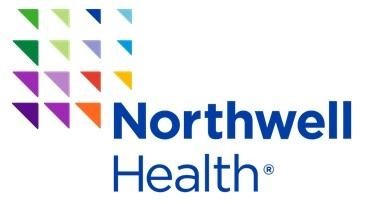MANHASSET, N.Y.--(BUSINESS WIRE)--The National Institutes of Health (NIH) has awarded Northwell Health’s Cohen Children’s Medical Center and The Feinstein Institutes for Medical Research, the homes of pediatric research at Northwell, two grants totaling $4.73 million to study nephrotic syndrome – a kidney disorder that causes the body to pass too much protein into the urine – specifically in children. Investigators will kickstart two different research studies, with the funding over the course of five years.
Nephrotic syndrome is usually caused by damage to the clusters of small blood vessels in the kidneys that filter waste and excess water from the blood. This condition often causes swelling, particularly in the feet and ankles, and increases the risk of other health problems, including kidney failure.
Led by Christine B. Sethna, MD, division director of pediatric nephrology at Cohen Children's Medical Center and associate professor at the Donald and Barbara Zucker School of Medicine at Hofstra/Northwell and the Feinstein Institute, the $1.03 million grant was awarded last year and will be used to fund a new clinical trial for children with nephrotic syndrome using vagus nerve stimulation. Children with nephrotic syndrome are exposed to prolonged courses of steroids and other immunosuppressant medications which could have adverse effects. This research plans to study the mechanism of action by stimulating the vagus nerve – which can be activated non-invasively on the ear – to have immunomodulatory effects mediated by the inflammatory reflex and spleen.
The vagus nerve is often referred to as the body’s superhighway – it connects the brain with all major organs and controls functions like heart rate, breathing and gastrointestinal function. When the nerve is stimulated, it can reduce inflammation, which is a trigger for many diseases and helps reset the body’s immune system.
“This funding will allow us to study, and ultimately help, children living with nephrotic syndrome and better understand how the condition can best be treated without negative side effects that steroids and medications could potentially leave,” said Dr. Sethna, principal investigator on the studies. “These advancements can further the evidence that drugs are not always necessary to alleviate a problem, especially in young children.”
The second grant of $3.7 million was awarded last month and will be used to initiate the kNIGHT study, which will focus on nocturnal hypertension in children with nephrotic syndrome. The observational study will examine the nighttime blood pressure and cardiovascular outcomes in children with nephrotic syndrome at 22 different centers. This data will inform future research and trials around this common trait of high nighttime blood pressure.
“Dr. Sethna is conducting valuable research to better understand nephrotic syndrome in children,” said Charles Schleien, MD, MBA, the Philip Lanzkowsky MD Chair and Professor of Pediatrics and Anesthesiology and senior vice president of pediatric services at Northwell Health. “With the support of these two grants, one day children may have new treatment options to help manage their disease and improve their overall quality of life.”
The Feinstein Institutes is the global scientific home of bioelectronic medicine, which combines molecular medicine, neuroscience and biomedical engineering. At the Feinstein Institutes, medical researchers use modern technology to develop new device-based therapies to treat disease and injury.
“Children with nephrotic syndrome suffer from the symptoms of the illness and from the side effects of steroids used in treatment,” said Kevin J. Tracey, MD, president and CEO of the Feinstein Institutes, and Karches Family Distinguished Chair in Medical Research. “Dr. Sethna’s research into vagus nerve stimulation to reverse the inflammation is an important step towards finding alternate therapies.”
Built on years of research in molecular mechanisms of disease and the link between the nervous and immune systems, Feinstein Institutes researchers discover neural targets that can be activated or inhibited with neuromodulation devices, like vagus nerve implants, to control the body’s immune response and inflammation. If inflammation is successfully controlled, diseases – such as arthritis, pulmonary hypertension, Crohn's disease, inflammatory bowel diseases, diabetes, cancer and autoimmune diseases – can be treated more effectively.
Beyond inflammation, using novel brain-computer interfaces, our researchers developed techniques to bypass injuries of the nervous system so that people living with paralysis can regain sensation and use their limbs. By producing bioelectronic medicine knowledge, disease and injury could one day be treated with our own nerves without costly and potentially harmful pharmaceuticals.
About Northwell Health
Northwell Health is New York State’s largest health care provider and private employer, with 21 hospitals, about 900 outpatient facilities and more than 12,000 affiliated physicians. We care for over two million people annually in the New York metro area and beyond, thanks to philanthropic support from our communities. Our 83,000 employees – 18,900 nurses and 4,900 employed doctors, including members of Northwell Health Physician Partners – are working to change health care for the better. We’re making breakthroughs in medicine at the Feinstein Institutes for Medical Research. We're training the next generation of medical professionals at the visionary Donald and Barbara Zucker School of Medicine at Hofstra/Northwell and the Hofstra Northwell School of Nursing and Physician Assistant Studies. For information on our more than 100 medical specialties, visit http://northwell.edu/ and follow us @NorthwellHealth on Facebook, Twitter, Instagram and LinkedIn.
About the Feinstein Institutes
The Feinstein Institutes for Medical Research is the research arm of Northwell Health, the largest health care provider and private employer in New York State. Home to 50 research labs, 2,500 clinical research studies and 5,000 researchers and staff, the Feinstein Institutes raises the standard of medical innovation through its five institutes of behavioral science, bioelectronic medicine, cancer, health innovations and outcomes, and molecular medicine. We make breakthroughs in genetics, oncology, brain research, mental health, autoimmunity, and are the global scientific leader in bioelectronic medicine – a new field of science that has the potential to revolutionize medicine. For more information about how we produce knowledge to cure disease, visit feinstein.northwell.edu.




